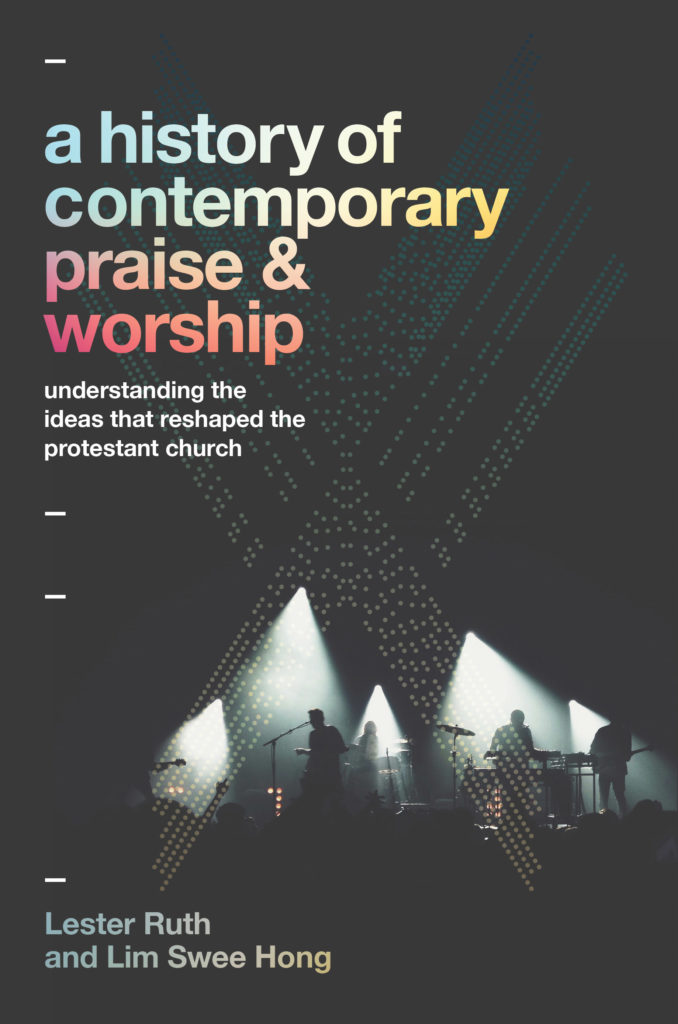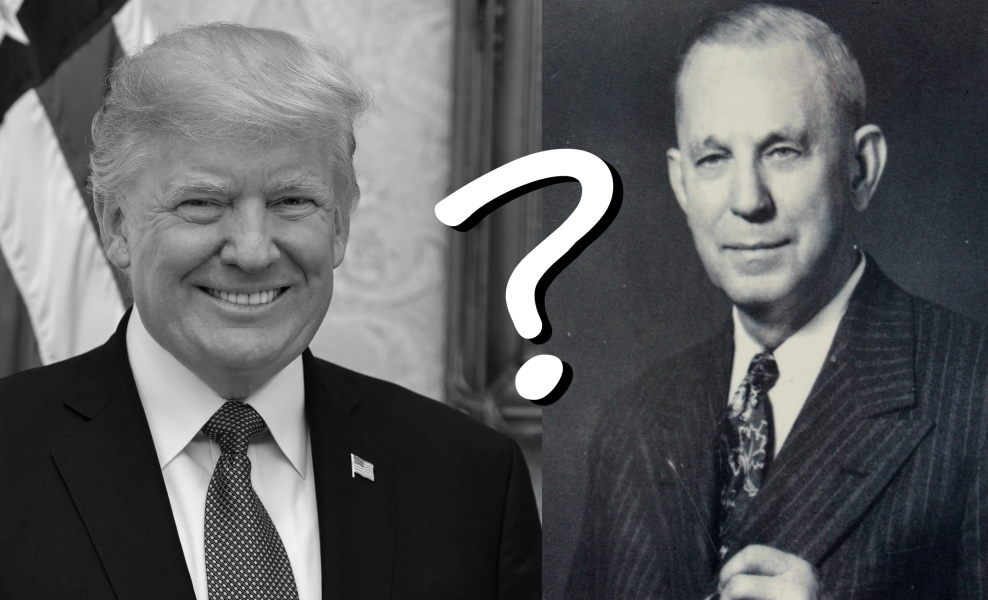One of the greatest obstacles I see in studying the Bible is that we sometimes read into the Bible’s words more than we read from them. We humans have a tendency to put definitions into words that are not justified by context or culture. We also like to prove what we believe rather than believe what we can prove.
I’d like to give an illustration of problem in Acts 20:20. Paul tells the church elders from Ephesus:
“And how I kept back nothing that was profitable unto you, but have shewed you, and have taught you publickly, and from house to house,…”
In my background and training I have heard this verse used many times to prove that Paul went door-to-door soulwinning and thus we should too. I had doubts about this position and even offered an alternative interpretation to some who used this verse thus. My response would be practically dismissed out of hand with no willingness to discuss the verse.
Here, I’d like to lay out my argument against this verse promoting door-to-door evangelism, offer another interpretation, and say a few words against the means leading to misunderstanding this verse.
1. Contextual Analysis of Paul’s Address
Paul is speaking here to the elders from Ephesus (Acts 20:17). In this address to them he is defending his ministry among them and exhorting them to be strong in the difficulties ahead.
Let’s examine the first sentence (vs. 18-21):
Ye know, from the first day that I came into Asia, after what manner I have been with you at all seasons, serving the Lord with all humility of mind, and with many tears, and temptations, which befell me by the lying in wait of the Jews: and how I kept back nothing that was profitable unto you, but have shewed you, and have taught you publickly, and from house to house, testifying both to the Jews, and also to the Greeks, repentance toward God, and faith toward our Lord Jesus Christ.
Paul is speaking of his faithfulness and consistency in his ministry. Troubles did not stop him. Situations did not alter his message. Whoever the audience was the message was the same: salvation by grace through faith in Christ.
Next two sentences (vs. 22-24):
And now, behold, I go bound in the spirit unto Jerusalem, not knowing the things that shall befall me there: save that the Holy Ghost witnesseth in every city, saying that bonds and afflictions abide me. But none of these things move me, neither count I my life dear unto myself, so that I might finish my course with joy, and the ministry, which I have received of the Lord Jesus, to testify the gospel of the grace of God.
Paul is headed toward Jerusalem and has awareness of his fate there. Knowing the trials that lie ahead he is pressing forward.
Next three sentences (vs. 25-27):
And now, behold, I know that ye all, among whom I have gone preaching the kingdom of God, shall see my face no more. Wherefore I take you to record this day, that I am pure from the blood of all men. For I have not shunned to declare unto you all the counsel of God.
Paul is appealing to his record and testimony that he has been faithful and full in his minsitry.
Next three sentences (vs. 28-30):
Take heed therefore unto yourselves, and to all the flock, over the which the Holy Ghost hath made you overseers, to feed the church of God, which he hath purchased with his own blood. For I know this, that after my departing shall grievous wolves enter in among you, not sparing the flock. Also of your own selves shall men arise, speaking perverse things, to draw away disciples after them.
Here he is challenging the Ephesian elders to follow his example and stay strong and faithful.
Now the final four sentences (vs. 31-35):
And now, brethren, I commend you to God, and to the word of his grace, which is able to build you up, and to give you an inheritance among all them which are sanctified. I have coveted no man’s silver, or gold, or apparel. Yea, ye yourselves know, that these hands have ministered unto my necessities, and to them that were with me. I have shewed you all things, how that so labouring ye ought to support the weak, and to remember the words of the Lord Jesus, how he said, It is more blessed to give than to receive.
We see here further defense of his ministry and the example he set for these church leaders to follow.
I believe it should be obvious that, taken as a whole, this speech is not an address on evangelism. When Paul touches on that subject it is secondary to the defense of his faithfulness. He exhorts his brethren to be strong and steadfast like he had been, but we do not see him commanding them to do exactly as he had done.
As to the meaning of “from house to house”, I do not see clarification from the larger passage. That Paul was preaching the Gospel we have no doubt whatsoever (vs. 21, 24, 25). That Paul did so in the midst of hardships, we have no doubt (vs. 19). That he was consistent and thorough in his teaching we have no doubt (vs. 21, 27, 35). But I don’t think we can definitively explain what “house to house” means quite yet.
2. Grammatical Analysis of Acts 20:18-21
Let’s dig deeper into verse 20 and I think we will begin to get some clarity. Again, the entire sentence is found in vs. 18-21:
Ye know, from the first day that I came into Asia, after what manner I have been with you at all seasons, serving the Lord with all humility of mind, and with many tears, and temptations, which befell me by the lying in wait of the Jews: and how I kept back nothing that was profitable unto you, but have shewed you, and have taught you publickly, and from house to house, testifying both to the Jews, and also to the Greeks, repentance toward God, and faith toward our Lord Jesus Christ.
Paul is appealing to his testimony and record here. He has been faithful in adversity and in consistent in message. The main subject is “ye”, the hearer is thus the Ephesian elders. The main verb is “know”. What do they know? Two things: “after what manner I have been” and “how I kept back nothing”. Everything else branches off from these two.
It is to that second object, “how I kept back nothing” we now focus. He expands on that thought: “but [I] have shewed you, and [I] have taught you”. Both of these relating back to how he “kept back nothing”.
Let’s keep going. Paul said “[I] have taught you”. How? Both “publickly, and from house to house”. This combination of adverb and prepositional phrase are linked in their description of how Paul taught.
We finish the sentence by further describing how Paul showed and taught the Ephesian elders, by “testifying both to the Jews, and also to the Greeks” – another couplet of descriptors. And of what was he testifying? “repentance toward God, and faith toward our Lord Jesus Christ.”
Thus, the use of “house to house” in grammatical context is descriptive of how Paul taught in Ephesus, as witnessed by and likely direct at the Ephesian elders. It is further related to how he taught “publickly”. I therefore contend that Paul is speaking in vs. 20 of how he taught both publicly and privately, just he taught both Jew and Greek. It is to show the consistency and faithfulness of Paul’s ministry. It is not emphasizing a method of going house to house, but rather that his private teachings were consistent with his public teachings.
3. What is a House?
Words have meanings, which may not be consistent across time and distance. Let’s see examine the word house here and make sure we understand its meaning.
The Greek word translated as house here is oikos (Strong’s #G3624). It can carry multiple meanings. First, a physical house or dwelling (examples: Matthew 9:6-7, 11:8) Second, the members of a household or family (examples: Acts 7:10, 11:14). It has many other applications and uses that extend from these basic definitions.
Either of the preceding two definitions work in Acts 20:20. He could be teaching from “dwelling to dwelling” or “family to family”. Here we possibly see something against reading door-to-door evangelism into this verse. If it is “dwelling to dwelling” then it could work, but “family to family” sounds more like a modern in-home Bible study.
But I’d also like to offer one more possible definition of “house”: it could be referring to church gatherings. We see Paul write to Timothy of the “the house of God, which is the church of the living God” (I Timothy 3:15). We also see multiple references to churches meeting in homes (Romans 16:5, I Corinthians 16:19, Colossians 4:15, Philemon 2). I also think these church meetings are meant by house in Acts 8:3 when Paul was persecuting the church at Jerusalem.
After Pentecost we see the following description of Christian gatherings: “And they, continuing daily with one accord in the temple, and breaking bread from house to house,…” (Acts 2:46). These Christians met in the public courtyards of the Temple complex or in private homes. No one seems to question that the breaking of bread in this verse took place in Christian meetings in private homes. I haven’t found anyone who sees door-to-door evangelism in Acts 2:46.
So, I offer that there are now three possible definitions of house as used in Acts 20:20: (1) a physical dwelling, (2) a household, and (3) a gathering of the church in a home. Both (1) and (2) we have already seen as possible meanings. I contend that (3) is also. Using this definition, Paul would be teaching both publicly and in private church assemblies. Not only does this maintain the descriptive comparison of public/private, but it enhances that comparison by further describing public to be outsiders from the church and private to be insiders of the church. I am inclined to believe (3) is the best definition to be used, but I don’t know how dogmatic we can be on it.
4. How Paul Preached in Ephesus
What Paul did in Ephesus is no secret. If you simply look back one chapter to Acts 19 you will see the account of it. A brief overview:
- Paul’s encounter with the disciples of John the Baptist – Acts 19:1-7
- Paul preaching in the synagogue – 19:8
- Paul disputing in the school of Tyrannus – 19:9-10
- The sons of Sceva – 19:11-20
- Demetrius’ riot – 19:21-41
Only the first ten verses shed any real light on how Paul ministered in Ephesus. The rest of the chapter could be seen as the impact of Paul’s ministry.
What can we learn of Paul’s method of evangelism in those first ten verses? The account regarding John’s disciples is not clear on how it took place, but I would assume an exclusive meeting with them that was likely private. Paul preaching in the Synagogue is something he did quite often, and a very public affair that likely opened doors for private meetings.
The one element that stands out is Paul’s time in the school of Tyrannus. Though we have no archaeological or historical evidence to give us further information on this person or his school, we can readily identify this a place for lecture and debate. In the Greco-Roman culture listening to lecturers, orators, lawyers, and teachers was a prime pastime. It is in his preaching at the school of Tyrannus for two years that find that “all they which dwelt in Asia heard the word of the Lord Jesus, both Jews and Greeks.”
If there is any major and effective method for spreading the Gospel in Ephesus in Acts 19 it is Paul’s preaching at the school of Tyrannus. It was there that he preached “publickly”, as described in Acts 20:20. It was there the Gospel spread into all Asia Minor. No mention or hint of a door-to-door campaign.
What about Paul’s ministry at other times and places? We see the same combination of preaching in a synagogue and in a public place at Athens in Acts 17:17 – “Therefore disputed he in the synagogue with the Jews, and with the devout persons, and in the market daily with them that met with him.” This appears to be the modus operandi of Paul’s ministry. To the Jew first in the synagogue and then to the public in a proper forum.
5. Would House-to-House Evangelism Work in the First Century?
My understanding is that it likely would not.
The poor lived in cramped, one-room tenements. They slept and ate at home. When it was dark they went home and shut the door. In the daylight hours these tenements would likely be largely deserted. People would be away working or gathering in the public areas of the city.
The middle class or wealthy would have multi-room homes. They would receive their clients and some visitors. They would host meals with guests. It is doubtful than an itinerant preacher would gain much of an audience. Not just anyone gained entrance into a Roman home and its family. Especially not a Jew, an even more especially one that spoke of this unknown Christ.
Safety and security were important to these ancient families. Most people did not venture out after dark because of dangers such as robbers. Usually the door was bolted shut and not opened until morning (Luke 11:7). Socialization with strangers would far more likely take place in a public area during daylight hours.
Ignoring the opportunities that may not be there, door-to-door evangelism is really only effective when you are dealing with people with some knowledge of the Bible or Christianity. This was not the case in the ancient world. The average citizen in the Roman empire in the mid-First Century might have a cursory knowledge of what made the Jewish religion different than the polytheism around it. I doubt that most rudimentary understanding was enough to instantly comprehend the tenets of Christianity.
Many of us do not comprehend what it is to share the Gospel with someone that does not possess some knowledge of what sin is or who Christ was. If you will speak to missionaries who work with people groups that have no concept of Christianity you will find it takes much longer than five minutes or even an hour to see someone trust in Christ. In America the question is often used by soulwinners, “If you died right now, are you 100% sure you will go to Heaven?” This presupposes the hearer believes in life after death, understands the Christian-defined Heaven, implies some knowledge of Hell as the only other alternative, and other information assumed be comprehended by both parties. Imagine Paul asking a random pagan that question. What is in their mind? From what we understand of ancient Greek culture there appears to be little emphasis on the afterlife although they believed in one.
Bottom line, in all likelihood “house to house” evangelism would be an ineffective method of evangelism in the First Century A.D.
6. History of Door-to-Door Evangelism
Search the histories of Christian movements, denominations, ministries, evangelists, and churches. You will likely not find any mention of anything that resembles door-to-door soulwinning older than 100 or 150 years.
The earliest reference that I have ever found to something resembling a modern organized door-to-door evangelistic effort is in the Life and Sayings of Sam Jones. I do not see a date given, but I think its around 1880:
At West Point there was a great revival, which resulted in many accessions to the different churches in the town. There was a moral reformation wrought that changed the aspects of the place. When Mr. Jones went there, the people were so dead, religiously, that the attendance was quite small. It was a morning service in a weekday. It seemed the most hopeless outlook for a meeting. There were but four people to hear him preach his first sermon. After his sermon he said, “Now, I want us to have an altar service.” Mr. Jones and the pastor and two noble women knelt for prayer. After they had reconsecrated themselves to God, Mr. Jones said : “I want the pastor to go with me to every business house in this town, and we will say to the men as we meet them, just one thing, and that is, ‘You are going to hell,’ and then we will move on. I want you good women to go all over this town, ring the door bell, and when the women meet you, just look them squarely in the face and don’t say but one things and that is, ‘You are going to hell.’ ” They made him the promise, and that afternoon practically every woman in the town was so addressed, while Mr. Jones and the pastor met men and warned them in that startling way. Some of the women slammed the doors in the faces of the two good women, while others had their curiosity aroused. The men got very angry, and it was with much difficulty and shrewd reasoning that fights were avoided. That night the whole town was out to church, and Mr. Jones preached one of his most scathing sermons. A great revival broke out which swept over the entire place, until finally the men who were notoriously opposed to religion were in constant attendance upon the services.
In the Christian biographies and histories I have read, I do not recall an older account than this. I am certain there are more and better ones, but their scarcity proves my assertion that door-to-door evangelism is a more recent development.
How did the Gospel get out if not by door-to-door soulwinning? Of course the Gospel was preached in churches. But what other means were used?
Like in ancient times, many preachers took to the open air. Whitefield and the Wesleys famously did so. I’ll quote here an account by Z.N. Morrell, one of the first Baptist preachers in Texas, of one such sermon in 1836 as recorded in his book, Flowers and Fruits in the Wilderness:
An election was in progress when I reached the town. This was the law and custom of the country in that day. Here was a large crowd of Americans, Mexicans, and Indians of several different tribes. My mule was soon tied, and after consultation with my great Master – for I had no one else to consult with – I decided to preach, and began looking around for a suitable place. Near by the vast crowd I saw the foundation timbers of a large framed building already laid. No floor had been laid, nor upright pieces raised. No sooner discovered than I selected one corner of this for a pulpit,- the sills and sleepers already laid and well adjusted would answer for seats. I held up my watch in my hand, and cried at the top of my voice, “O-yes! o-yes! o-yes! everybody that wants to buy, without money and without price, come this way,” – and commenced singing the old battle-song: “Am I a soldier of the cross?” Before I finished my song there was around me a large crowd of all sorts and sizes and colors. A brief prayer was offered, and the two verses sung, “‘Tis religion that can give,” amidst profound silence. Astonishment, rather than reverence, was stamped upon their features. Across the street was a large upper gallery, and by this time it was full of ladies and gentlemen. Just at this point some wagons and a carriage, evidently belonging to movers, drove up close to where I was standing, and I recognized brother Win. Whitaker and family, from Hardiman County, Tennessee, three of whose daughters I had baptized in the old State. The preacher who reads this will understand the effect this produced upon the speaker. My text was announced from Isaiah xxxv. 1: “The wilderness and the solitary place shall be glad for them; and the desert shall rejoice and blossom as the rose.” Never did the cane-brake preacher receive better attention. God blessed me with great liberty for one hour, amid many tears shed all around me. The congregation was dismissed in due form, and there were many hearty shakes given the strange preacher’s hand. My soul was full to overflowing, and at that moment I believed the text. God has not disappointed me.
Of course there were the revivals and the camp meetings that sprang up in the 1800’s. There was the work done in the early Sunday School movement. There were ministries where ladies simply went to the homes of the poor and uneducated and read the Bible to them. There are the mass evangelistic campaigns by men like D.L. Moody, Billy Sunday, and later Billy Graham. There have been printed tracts, radio broadcasts, Salvation Army bands, and a host of other methods to spread the Gospel. One of my favorites is from Louis Arnold (1914-2015) who flew a plane around Kentucky that was equipped with loudspeakers blasting out a recorded gospel sermon.
Bottom line is that history is full of innovative and effective methods to proclaim Christ’s Gospel. What works in one place and time may not work in another situation.
As near as I can tell, door-to-door evangelism probably arrived with the Christian worker programs and mass evangelistic efforts of men like D.L. Moody in the mid-1800’s. The growing urbanization of America in the late-1800’s on into the mid-1900’s provided ample doors to target. The rise of the suburbs after World War II played a part. Also the increased mobility because of the automobile widened the range of labor beyond a church’s immediate neighborhood. American culture in those days was largely open to having people (family, salesmen, neighbors, soulwinners, or whatever else) stop by a home. Rising amounts of leisure time meant people were more likely to be home when someone called on them. In short, it was the perfect environment for door-to-door evangelism to grow and flourish.
7. Commentaries on Acts 20:20
What say other men who have studied and commented on Acts 20:20? I have gathered below a few quotes from men of varying backgrounds and opinions. Let us see what we can learn from them.
John Gill (1697-1771) comments:
“…as he visited the saints at their own houses, to know their personal cases, and the state of their souls, he instructed them privately and personally one by one; he taught the same publicly as privately, and privately as publicly: and took every opportunity of instilling Gospel truths into them, and of enriching them with a larger knowledge of them; which shows his affection and zeal, his laboriousness, industry, and indefatigableness in the ministry.“
Albert Barnes (1798-1870) comments along similar veins:
“And from house to house – Though Paul preached in public, and though his time was much occupied in manual labor for his own support Act_20:34, yet he did not esteem his public preaching to be all that was required of him, nor his daily occupation to be an excuse for not visiting from house to house. We may observe here:
“(1) That Paul’s example is a warrant and an implied injunction for family visitation by a pastor. If proper in Ephesus, it is proper still. If practicable in that city, it is in other cities. If it was useful there, it will be elsewhere. If it furnished to him consolation in the retrospect when he came to look over his ministry, and if it was one of the things which enabled him to say, “I am pure from the blood of all men,” it will be so in other cases.
“(2) The design for which ministers should visit should be a religious design. Paul did not visit for mere ceremony; for idle gossip, or chit-chat; or to converse on the news or politics of the day. His aim was to show the way of salvation, and to teach in private what he taught in public.
“(3) How much of this is to be done is, of course, to be left to the discretion of every minister. Paul, in private visiting, did not neglect public instruction. The latter he evidently considered to be his main or chief business. His high views of preaching are evinced in his life, and in his letters to Timothy and Titus. Yet, while public preaching is the main, the prime, the leading business of a minister, and while his first efforts should be directed to preparation for that, he may and should find time to enforce his public instructions by going from house to house; and often he will find that his most immediate and apparent success will result from such family instructions.
“(4) If it is his duty to visit, it is the duty of is people to receive him as becomes an ambassador of Christ. They should be willing to listen to his instructions; to treat him with kindness, and to aid his endeavours in bringing a family under the influence of religion.“
Charles Ellicott (1819-1905) says:
“Publicly, and from house to house.—The first word points probably to the teaching in the synagogue and the lecture-room of Tyrannus (Acts 19:9), the second to the meetings of disciples which were held in private houses, such as that of Aquila and Priscilla (1 Corinthians 16:19). It may, however, include even more personal and individual counsel.”
Matthew Poole (1624-1679) writes:
“And from house to house; privately, as Acts 2:46; not only speaking publicly and in general, but secretly and particularly, as everyone’s condition did require, exhorting some, reproving others. And indeed a good shepherd will labour to understand the state of his flock, and to supply them with what is necessary and suitable for them. Jacob says, Genesis 31:39, that he bare the loss, and was fain to answer for all the sheep unto Laban. And of how much more value are the souls of men, to be sure, in God’s sight, who will require an account of them!“
W. Robertson Nicoll in the Expositor’s Greek Testament:
“publice et privatim, another and a further glimpse of the Apostle’s work at Ephesus: publicly in the synagogue and in the school of Tyrannus, privately as in the Church in the house of Aquila and Priscilla, 1 Corinthians 16:19.“
E.W. Bullinger (1837-1913):
“from house to house = in your houses. Greek. kat” oikon, as in Acts 2:46.“
John Calvin (1509-1564) writes:
“Publicly, and throughout every house. This is the second point, that he did not only teach all men in the congregation, but also every one privately, as every man’s necessity did require. For Christ hath not appointed pastors upon this condition, that they may only teach the Church in general in the open pulpit; but that they may take charge of every particular sheep, that they may bring back to the sheepfold those which wander and go astray, that they may strengthen those which are discouraged and weak, that they may cure the sick, that they may lift up and set on foot the feeble, ( Ezekiel 34:4) for common doctrine will oftentimes wax cold, unless it be holpen with private admonitions.
“Wherefore, the negligence of those men is inexcusable, who, having made one sermon, as if they had done their task, live all the rest of their time idly; as if their voice were shut up within the church walls, seeing that so soon as they be departed, thence they be dumb. Also, disciples and scholars are taught, that if they will be numbered in Christ’s flock, they must give place to their pastors, so often as they come unto them; and that they must not refuse private admonitions. For they be rather bears than sheep, who do not vouchsafe to hear the voice of their pastor, unless he be in the pulpit; and cannot abide to be admonished and reproved at home, yea, do furiously refuse that necessary duty.“
H.A. Ironside (1876-1951) said this while preaching from this passage:
“And then he was so true to his commission. He said, “I kept back nothing that was profitable unto you, but have showed you, and have taught you publicly, and from house to house.” He was not simply a man of the pulpit. As he stood on the platform he was faithful in giving out the Word of God; he sought to be just as faithful when he visited the people in their homes.
“It is pitiable, I think, that to a great extent the good old fashioned custom of pastoral visitation has almost died out. A strange thing occurred to me once. While speaking in a certain city, I learned of a dear soul who was very ill and longed to come to our meetings but was greatly disappointed because she could not come. So I thought, / will look her up. I found her address and went to see her. I had a most delightful visit, and then I asked, “Shall we read a little from God’s Word?” “Oh,” she replied, “how I wish you would!” So I read a portion of Scripture, then bowed with her in prayer. And our hearts were moved. But this was the strange part: when I was leaving, she said, “This is the first time in twenty years that I have ever had a minister read God’s Word or pray with me when he visited me.” “Well,” I said, “perhaps you haven’t been visited often.” “Oh, yes,” she answered; “our minister comes about once a month, and he usually tells me the latest good story and tries to cheer me up a bit.” Isn’t it pitiable? I do not know any more precious ministry than that of going into the homes of God’s dear people and opening up the Word and then lifting up the heart to God in prayer. This is true apostolic service.“
Arthur Peake (1865-1929) simply noted:
“Acts 20:20. in houses: e.g. of Aquila.“
Joseph Benson (1749-1821) notes:
“publicly — In worshipping assemblies; and from house to house — As God gave me opportunity; inculcating, in visits and in private meetings, the same great doctrines which I declared in the synagogue and other places of concourse and resort.“
A.T. Robertson (1863-1934) wrote:
“By (according to) houses. It is worth noting that this greatest of preachers preached from house to house and did not make his visits merely social calls. He was doing kingdom business all the while as in the house of Aquila and Priscilla (1 Corinthians 16:19).“
John R. Rice (1895-1980), on p. 495 of Dr. Rice, Here Are More Questions…, makes this comment on Paul’s soulwinning efforts after referencing Acts 20:20 and 31:
Earnest soul winning, publicly and from house to house, night and day with tears – that is the picture given of Paul’s ministry.
B.H. Carroll (1843-1914) says on this passage:
“When we get a three years’ sample of a man’s preaching we can have some idea, especially if he is preaching every day and every night in that three years, as to the matter, the scope, and the manner of his preaching. Of course, if he hasn’t got much to preach, he could not preach three years right straight along – he would run out of material – but Paul was brimful, and the scope of his preaching is expressed in two ways: (1) That he had withheld nothing that was profitable. (2) That he had not shunned to teach the whole counsel of God. That would have been a fine seminary course if we could have been there three years; could have taken that three years in the Bible by the greatest expounder since the Master went to heaven. He preached at every town, and particularly in preaching to the unconverted, he says, ‘Is testified both to the Jews and to the Greeks) repentance toward God and faith in the Lord Jesus Christ.’ Some preachers go around and leave out repentance. He ought to preach the gospel, and he should preach repentance as he preaches faith, and he needs to preach it in the order – repentance toward God and faith in the Lord Jesus Christ. As to the manner of his preaching, notice the address itself, how he describes it. He says, ‘Why, brethren, you know that I was with you in humility. By the space of three years, publicly and privately, from house to house, day and night, with tears, I ministered unto you.‘”
TO SUMMARIZE: There is no consensus view. Some see pastoral visitation, a few see church gatherings, others see something of evangelism.
8. CONCLUSION
I find little basis in the exegesis of this text or in the recorded history of Christianity to support the conclusion that “house to house” must be door-to-door evangelism.
1st, Acts 20:20 is part of a discourse by Paul defending his ministry in Ephesus. He appeals to his example of faithfulness. He does not tell the Ephesian elders to do exactly as he did, but rather to rather to follow in his example of his selfless and thorough care for the church.
2nd, the phrase “house to house” is coupled to the “publickly” to show the breadth of Paul’s ministry and his faithfulness in it. He is speaking to the Ephesian elders, saying that the has taught them faithfully and thoroughly in both public and private settings no matter the audience.
3rd, the word “house” does not clearly define who Paul is speaking about teaching. If dwelling to dwelling, then door-to-door evangelism is possible but not guaranteed. If household to household it is possible but less likely as it would lean more toward pastoral visitation. If church assembly to church assembly, it cannot be door-to-door evangelism. If we accept the similarity of the same phrase in Acts 2:46 and apply it here then it most certainly is speaking of church assemblies and not evangelism.
4th, the account in Acts 19 of Paul’s ministry in Ephesus makes no mention of door-to-door evangelism, instead highlighting the preaching of the school of Tyrannus as being the special impetus behind the spread of the Gospel.
5th, it is unlikely that door-to-door evangelism would have been effective in the first century according to what we know of the culture.
6th, there is no record known to me of door-to-door soulwinning being practiced before the 1800’s. If there exists any it would must to be a rare occurrence and not pattern followed from the New Testament.
7th, the comments on this passage by pastors and scholars do not prove definitive. But it does appear that interpreting “house to house” as door-to-door evangelism is of modern vintage.
Therefore, I believe we have before us a simple case of eisegesis, defined by Merriam Webster as “the interpretation of a text (as of the Bible) by reading into it one’s own ideas”. Instead of letting the Bible speak for itself, some well-meaning Christians put a new meaning into this text. I do not think there was any deceitfulness on their part, just a simple mistake.
So, which came first: the practice of door-to-door evangelism or finding door-to-door evangelism in Acts 20:20? I’m afraid the practice came first, then the interpretation. If not so, many great Christians over many centuries completely missed, overlooked, or ignored it. The older commentaries cited in Section 7 are more likely to see “house to house” as pastoral ministry and not evangelism.
9. Defense Against Critics
The most difficult part of putting this information together is knowing that, based on personal experience, those who incorrectly see door-to-door evangelism in Acts 20:20 will not be convinced otherwise. They value their practice of evangelism greater than their loyalty to Scripture. They can break down the nuances of a difficult verse like Acts 2:38 to counter baptismal regeneration and then rattle through a ready supply of verses on salvation by grace through faith, yet they stumble in the simple interpretation of Acts 20:20.
One issue I find is that people who hold that position on Acts 20:20 view any criticism on door-door evangelism as an attack on evangelism. It is a classic misdirection that deflects the responsibility of defending their position. I am absolutely for evangelism, but I’m also for honest Bible interpretation. If you use a verse like Acts 20:20 to defend you position, be prepared to defend its use.
What we see then is an unfortunate logical error that equates evangelism as door-to-door soulwinning. To that group, the method for accomplishing the Great Commission simply is door-to-door evangelism, or perhaps a broader term like “confrontational soulwinning”. I believe that to say that there is only one method for propagating the Gospel is gross negligence on their part. It places limits on the power and providence of God.
When I propose that door-to-door soulwinning is not found in the Bible, the counter from this group is almost assuredly to be something like, “Well, how are they going to hear if we don’t tell them?” That supposes I am attacking evangelism (which I am not) and also based on their false assumption that evangelism equates to door-to-door soulwinning. Or perhaps, “Well, how many souls have you won?” That supposes we are in a competition (which we are not) and resorts to a weak ad hominem attack instead of having an honest discussion. I’ve heard, “Well, do you have a better idea?” Why, yes, I do: faithfully interpret the words of Scripture and keep trying to reach the lost by all means possible.
I have never and will never say that you can not or should not go door-to-door soulwinning. But I will not limit the work of evangelism to just that one method. I am not against door-to-door soulwinning. I am for any method that is lawful, Scriptural, moral, and effective. What I am against is saying the only Biblical method of evangelism is door-to-door soulwinning, or even that such a method is taught in Scripture. I find no scriptural basis for those claims. I am also against a mentality that says, “If you do not evangelize as I do, you are not truly following God.”
Let us conclude with this: there is an obvious, Biblical mandate to reach the lost with the Gospel (Matthew 28:19-20 is the easiest example). I find that there is simply no mandate to do so in the form of door-to-door soulwinning. It is not in Acts 20:20, nor anywhere else in the Bible. Those that hold such a position are guilty of reading something into the Scriptures that is not there.






